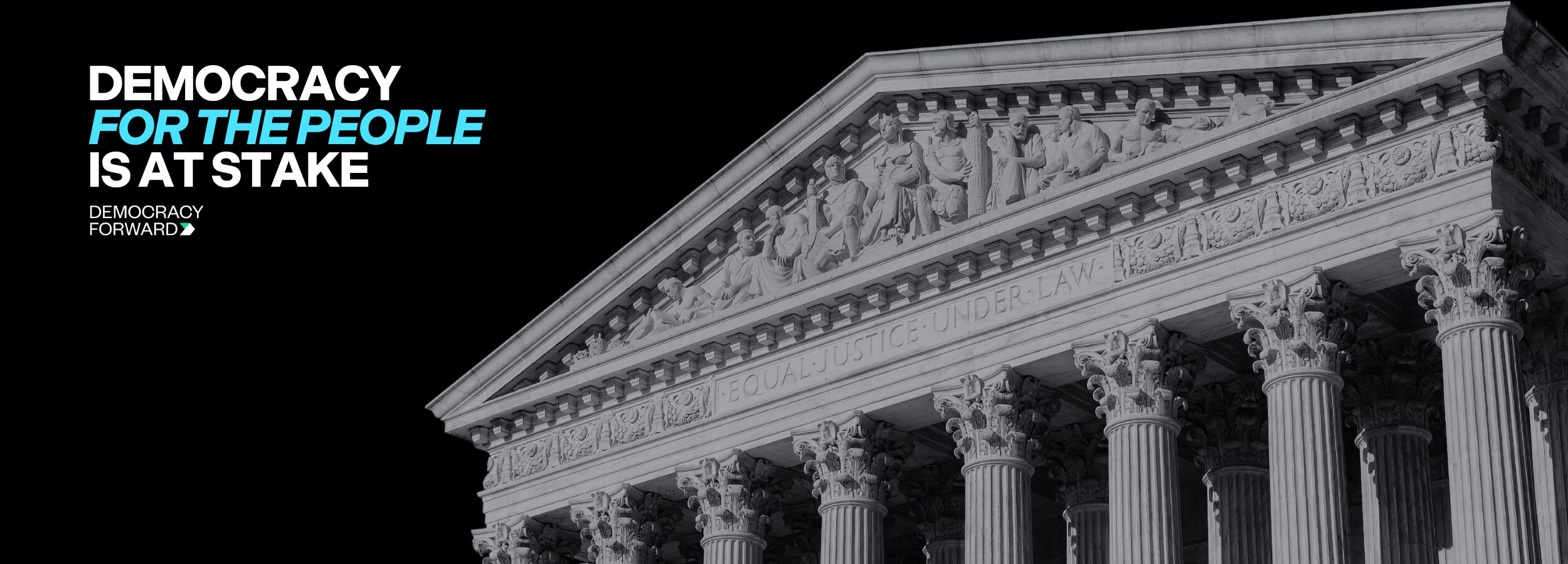
WHAT’S AT STAKE: The government’s ability to deliver for people, and public faith in our democratic institutions.
This term, we expect the Supreme Court to hear cases that could radically alter the ability of the federal government to deliver for and serve people. These cases, concerning what legal scholars would call “administrative law,” may rewrite the longstanding rules of how our government operates, a goal that the far right has been pursuing for decades.
These cases concern the way federal agencies can and do work for people. Federal agencies are created by Congress and they are responsible for carrying out policies that affect the wellbeing of people. The regulation of our food and medication quality, our water quality, our protection against fraud and misleading consumer schemes, and so much more are all areas where federal agencies play a critical role in working for people—and all could be at risk.
These cases are not just about a disagreement over the size of the government’s role in people’s lives. If successful, the attacks on our system of government being lodged this term will undermine our government’s ability to work for all of us, leaving even more people and communities without the services they need.
The groups behind these cases want to avoid accountability by making them sound highly abstract and detached from our everyday lives. The reality is that the outcomes of these cases will affect people’s lives, no matter how much extremists behind them try to downplay the stakes.
People’s Guide to the Anti-Democratic Legal Playbook
Read MoreWHO IS INVOLVED: A well-funded, highly-coordinated legal movement of anti-democratic extremists
The same coordinated, well-funded anti-democratic movement pushing the Big Lie is simultaneously in court seeking to undermine the government’s ability to deliver for people. This includes briefs submitted by one lawyer recently indicted alongside Donald Trump for allegedly undermining Georgia’s 2020 elections. It also includes legal organizations that have worked to undermine public sector unions, oppose healthcare reform, weaken worker and environmental protections, stop affirmative action in college admissions, and more.
WHAT HAPPENS NEXT: People, communities, legal advocates, and all of us must be educated and ready to respond.
As with any Supreme Court term, the impacts of these decisions will not end the day they are announced. We expect the far-right legal movement to seize on many decisions from this term to begin the next phase of their efforts to attack progress and undermine our democracy.
People and communities must start by educating themselves about the threats we can expect from outcomes in the key cases of the term. We at Democracy Forward are ready to work with you to defend the government’s ability to deliver for your community in court and across the country.
These cases may seem wonky, overly complex, or inaccessible – but it is critical to understand how decisions in each of these cases will have real impact on people’s lives.
Additional resources:
We’ve compiled a People’s Guide to the Anti-Democratic Legal Playbook of the technical terms you can expect to hear as a part of the far-right effort to disguise what they are doing.